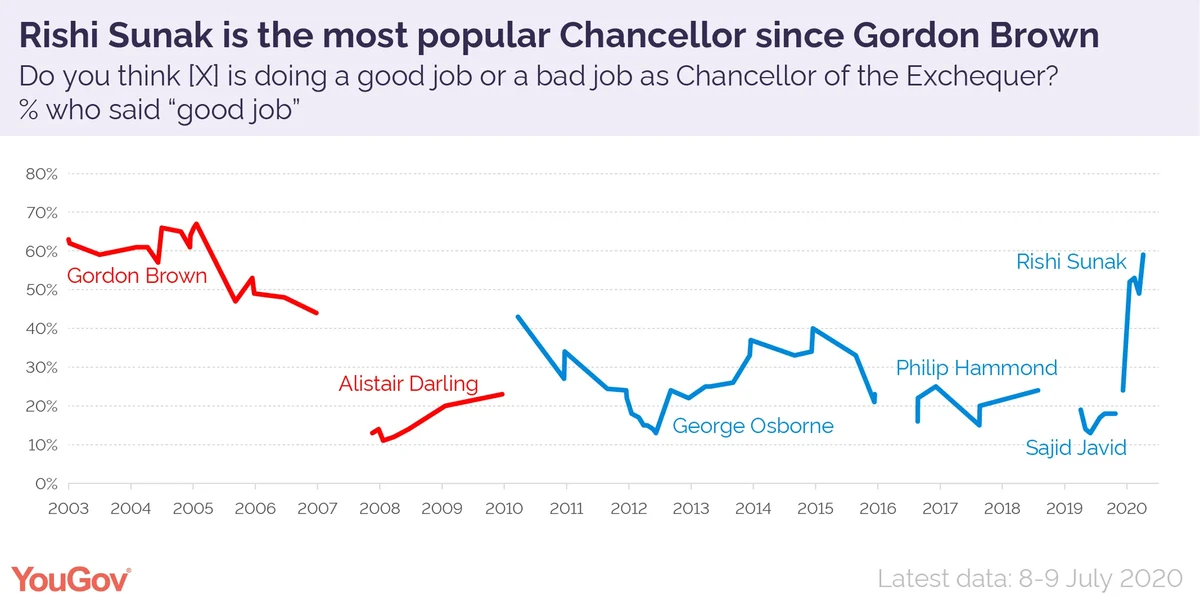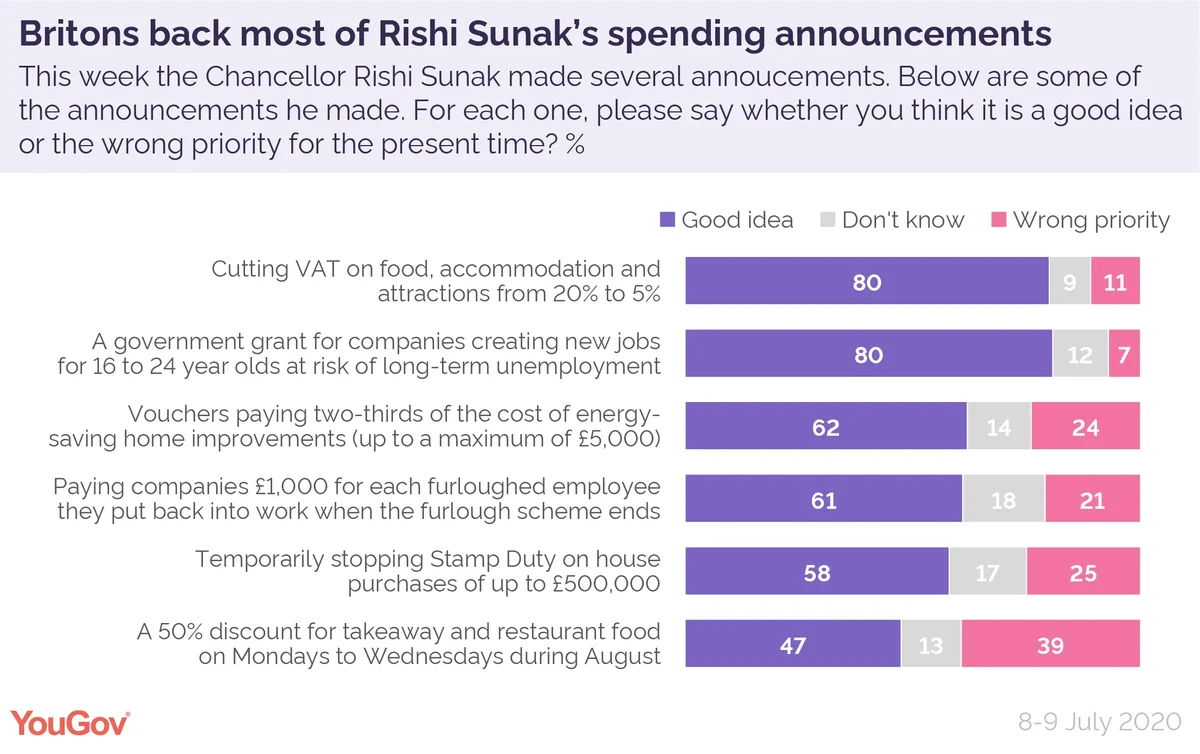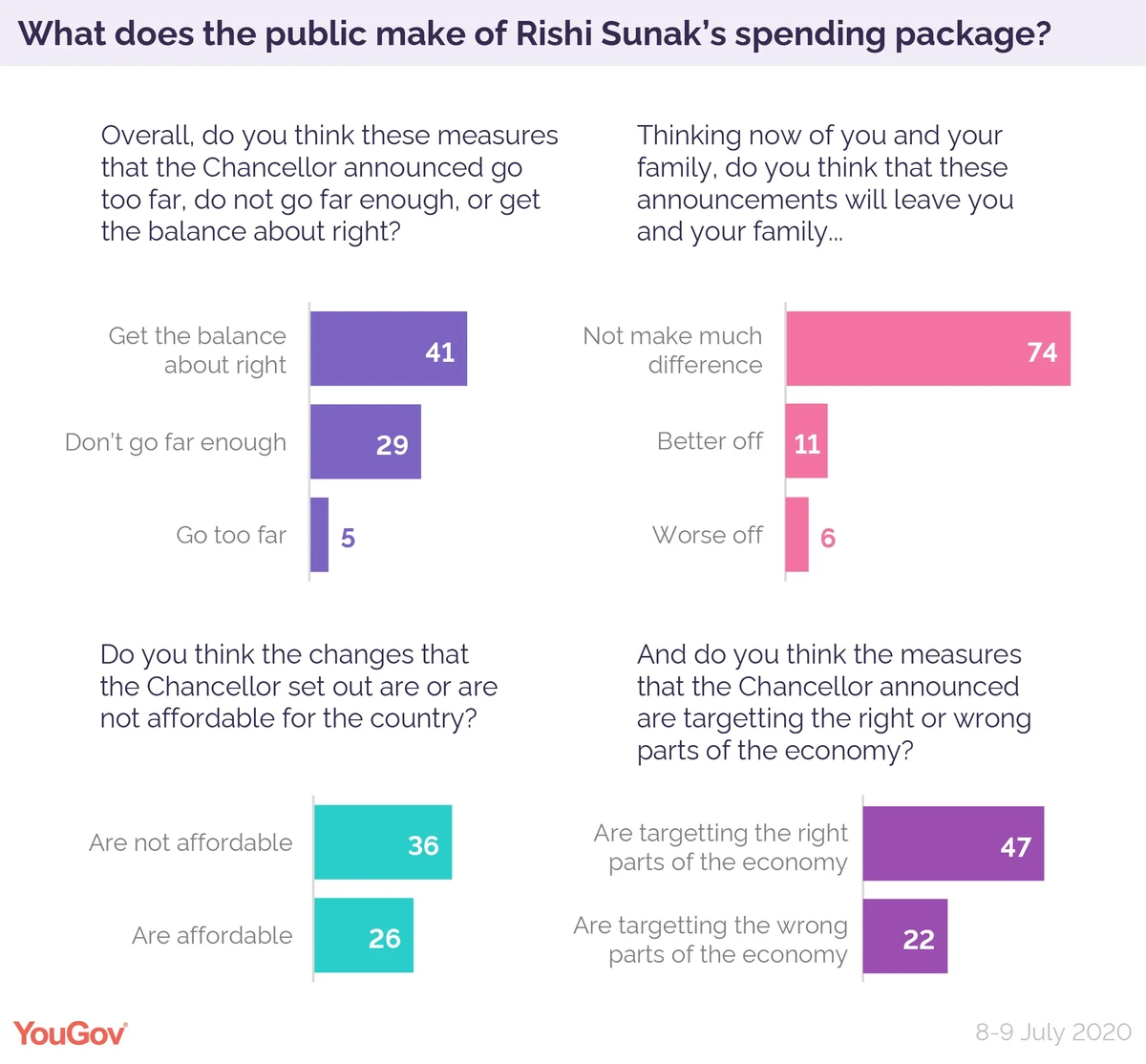Five times as many approve than disapprove of the measures announced in Rishi Sunak’s statement this week, with 64% now thinking he is doing a good job as Chancellor of the Exchequer
Ever since announcing the furlough scheme in March with a declaration that he was willing to do “whatever it takes” to protect the economy, Rishi Sunak has been the most popular serving politician in the country.
Polling conducted by YouGov after Wednesday’s statement shows the latest raft of announcements have helped to solidify this status. Six in ten (59%) now think he is doing a good job as Chancellor of the Exchequer (up 10% since June) with just 11% thinking he is doing a bad job (unchanged since June).
This makes him the most popular man to hold the office in 15 years, since Gordon Brown still held his reputation as the “Iron Chancellor” in the run up to the 2005 election.
The public warmly received all six of the policies we tested from his statement, with more thinking that each is a “good idea” rather than the “wrong priority”. The most popular are new grants to create jobs for 16- to 24-year-olds, with 80% thinking it is a good idea, and the VAT cut on food, accommodation and attractions, which 80% also think is a good idea.
The least popular announcement was the new “eat out to help out” restaurant discount, although even then more thought it was a good idea (48%) rather than the “wrong priority” (39%).
It is important to look at what the public think of packages like this as a whole, rather than just the views of the individual announcements. But even then, 64% approve of the new announcements, eight times the 8% who disapprove.
However, there are still two important caveats to make about these otherwise positive numbers.
Firstly, budgets can be popular in the immediate aftermath, but unravel in the following days as they come under closer scrutiny. While the public currently view the measures as “targeting the right parts of the economy” (47%), some bodies have already criticised the job retention bonus for not efficiently funnelling money into saving jobs.
Secondly, it is only going to get harder with time. The previously unknown Chancellor has been able to act like a nationalised Santa Claus, gifting people financial support during the economic downturn.
However, as both the unemployment numbers and Government deficit inevitably increases his decisions will come under more scrutiny, and he will be forced to make tougher and more unpopular decisions.
The polling already shows the public forming a pincer movement, with many worrying the package is “unaffordable” (36%), and many others thinking the package “doesn’t go far enough” (29%).
But as things currently stand the measures have been warmly welcomed by the public, and the Chancellor’s popularity with the public will be the envy of all across Westminster.
Perhaps he should have a meal out to celebrate.

















